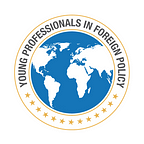A New Trade Strategy for Japan
By Matthew Edwin Carpenter
“China’s ripping us off. Japan’s ripping us off. Mexico’s ripping us off. Canada’s ripping us off. The whole world is ripping us off. There’s nobody that’s not ripping us off.” — President Donald J. Trump, at a 2018 campaign fundraiser.
In face of the escalating trade war between the United States and China, Japan is pursuing a strategy of bilateral trade relationships to mitigate its harmful effects on the Japanese economy. After years of hesitation, Prime Minister Shinzo Abe agreed to go ahead with a bilateral trade agreement with the United States in September 2018.
Kiuchi Takehide, executive economist at the Nomura Research Institute, argues in his article that when “focusing on the impact of the trade war on Japanese industry, it is anticipated its auto industry will take the biggest hit.” As the U.S. economy feels the impacts from the trade war, he argues Japan’s auto industry, with its “heavy reliance on exports to the U.S. market,” and the possibility of tariffs from the Trump administration, “would mean a tremendous loss for the future prospects of the Japanese economy.”
With the threat of possible tariffs to Japan’s key industrial export industry, it seems Abe relented.
Japanese business leaders are worried about the progression of the U.S.-China trade war. Nikkan Kogyo Shimbun, on September 28, 2018, reported 76 percent of business leaders in a survey stated the trade war will have a negative impact on Japan’s industries, particularly “iron, steel, fabrics, automotive, and electronics.” In response, Japanese manufacturers are shifting their manufacturing bases and area of imports from China and the U.S. with a “long term perspective” in mind. These firms include Honda, Mitsui, Sumitomo, Marubeni, and Uniqlo, among many others, to places like Thailand, Vietnam, and Brazil.
Additionally, Japan is building trade relations with other countries. Along with the free trade agreement Japan signed with the EU on July 17, 2017, which covers almost a third of the world’s economy, it seems the Abe administration, emboldened with a recent electoral victory, is warming up to China and others as well.
In an interview with Sankei Shimbun on Semtember 2, 2018, Prime Minister Abe stated relations between Japan and China have “completely returned to a normal trajectory.” In face of the trade war, Japan is consider taking part in a China backed free trade deal that would incorporate 16-nations, 10 Asean members, as well as China, Australia, India, New Zealand and South Korea, covering about half the world’s population and a third of its GDP. It is reported Japan is “proactive” to this proposal. Further, on September 22 there were calls for a free trade deal between China, Japan, and South Korea.
Japan is not sitting idly as the destructive effects of the U.S.-China trade war continue to manifest itself. As seen in the examples above, Japan under Abe is proactive: signing or initiating negotiations of free trade deals bilaterally with players globally while shifting its business operations to other parts of the world with a long-term perspective. This, coupled with Abe’s robust foreign policy initiatives, such as the TPP plus 11 and strengthening of ties with India, proves that Japan is ready to take the new “increasingly chaotic world order” on, as U.N. Secretary General Antonio Guterres described, with full force.
Matthew Edwin Carpenter is a U.S. citizen born to American parents in Nara, Japan, where he spent over half his life. He is a full native bilingual/bicultural professional in Japanese and English. His experience ranges from journalism to finance and NGO work. More details available at www.biculturalconsultant.com.
The opinions expressed in this article are the author’s own and do not reflect the views of their employer of Young Professionals in Foreign Policy (YPFP) New York.
YPFP engages, builds, and amplifies NexGen voices to advance innovative solutions to global challenges. Interested in membership? Learn more.
